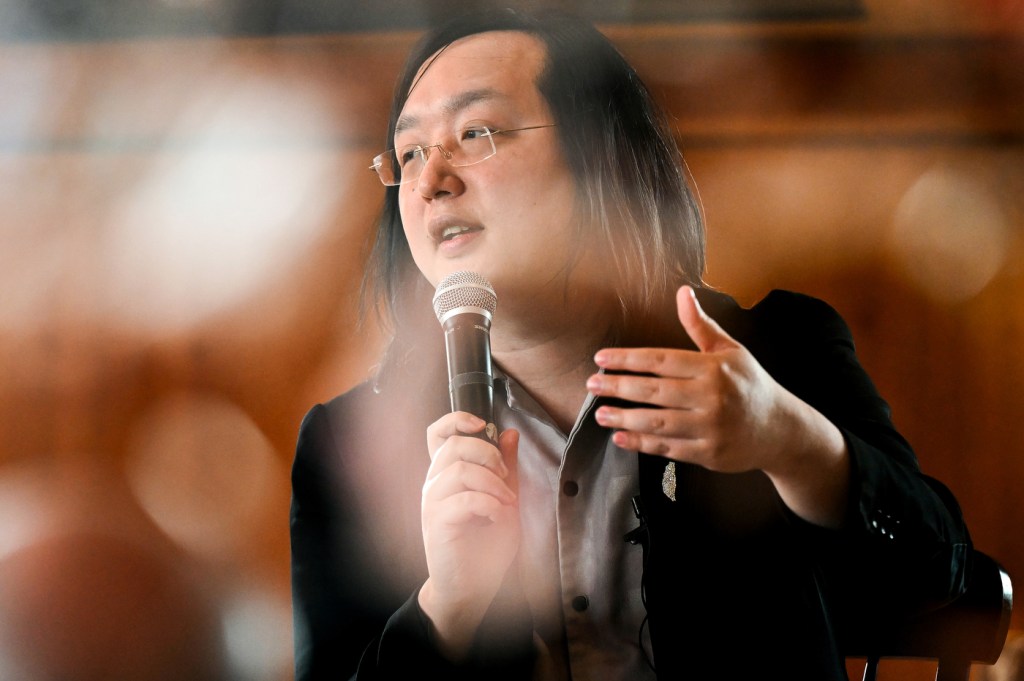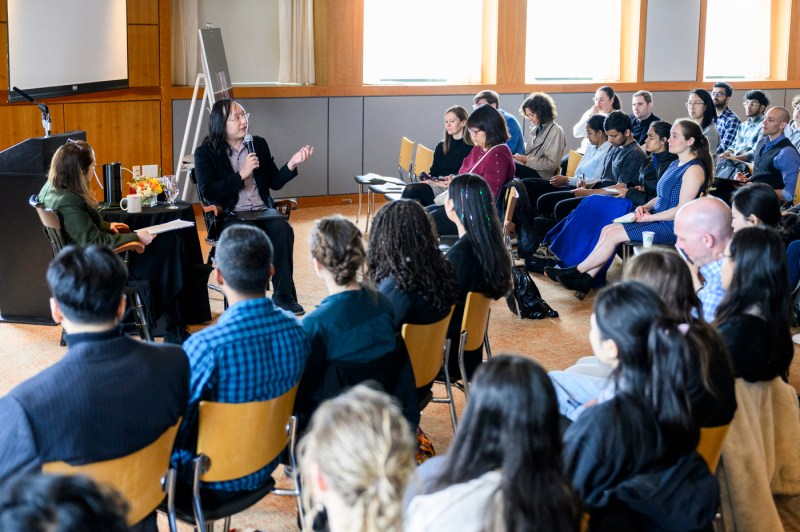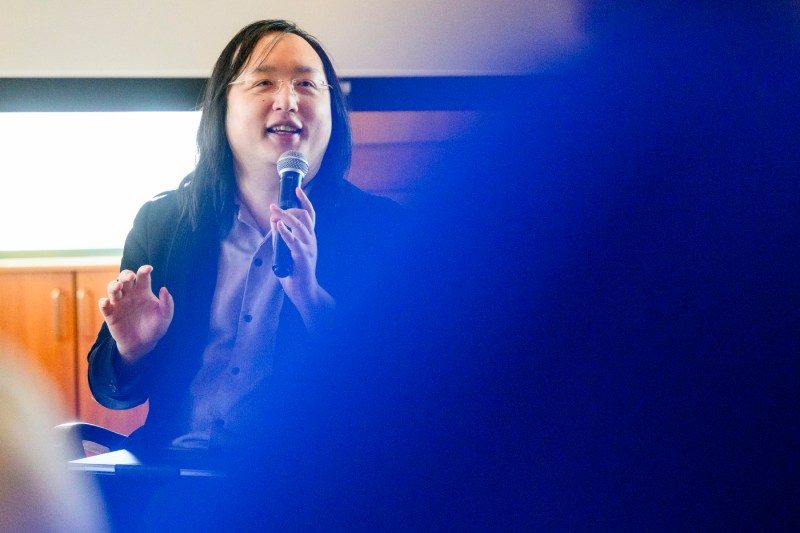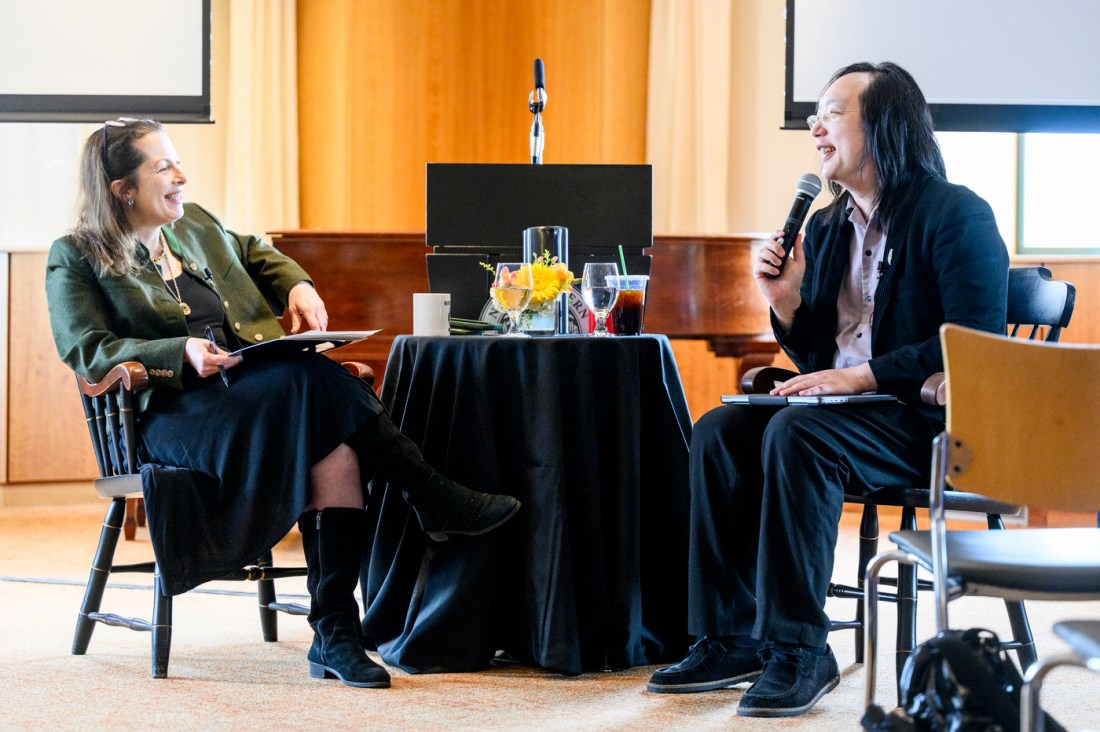How can we use AI to build more democratic societies? The key lies in transparency, Taiwan’s digital affairs minister says

When Audrey Tang was appointed to serve as Taiwan’s minister of digital affairs in 2016, she was asked to write her own job description.
Community was top of mind, and her description ended up reading less like a list of duties and more like a creed.
“It goes like this,” Tang said Friday afternoon at the Alumni Center on Northeastern’s Boston campus. “When we see the Internet of Things, let’s make it an Internet of Thee. When we see virtual reality, let’s make it a shared reality. When we see machine learning, let’s make it collaborative learning. When we see user experience, let’s make it about human experience. And whenever a singularity is near, let us always remember the plurality is here.”
It’s that frame of thinking that helps direct much of Tang’s day-to-day actions. As the digital affairs minister, Tang’s role is multifaceted, but her key mandate is to harness the power of technology to combat political polarization and create productive communities, she says.
Tang was on campus to cap Northeastern’s successful AI in an Action Week, taking part in a discussion moderated by Beth Simone Noveck, a Northeastern professor and director of the Burnes Center for Social Change.
The discussion was hosted by the center as part of its Rebooting Democracy in the Age of AI lecture series.
Tang was a key figure in helping the country fight misinformation and orchestrating its contact tracing system during the COVID-19 pandemic. Today she is a major proponent in leveraging the power of AI to create more transparency in government. Her work led her to be named one of Time magazine’s 100 most influential people in artificial intelligence in 2023.
In Taiwan, government officials are leveraging the power of AI by working with industry partners to create more collaborative and democratic projects, Tang explains.




Tang highlighted her work with Open AI and Anthropic, two of the most well-known Silicon Valley-based tech companies developing AI chatbots. As part of an initiative with the Collective Intelligence Project, the trio have developed Alignment Assemblies, which are online forums that allow constituents to voice how they think these AI technologies should be developed.
“I think the government should trust people, not the other way around,” she said. “I radically trust my fellow citizens. … By trusting our people, they have the freedom to do that on the edge.”
Taiwan has done similar actions itself, sending thousands of text messages to constituents, asking them to take part in a survey on their thoughts on AI technologies. As part of the project, the country is taking advantage of Stanford’s online video platform to host chats with those residents.
“We now have a very comprehensive picture of how to counter AI harms,” she said.
The five-day AI in Action conference, hosted by the university’s Office of the Provost and Office of the Chancellor with support from the Institute for Experiential AI, was packed with sessions and talks centered on AI literacy, real-world applications and the best practices for using the emerging technology in the workplace.
From learning the basics of “prompt engineering” to more detailed discussions on how the technology is reshaping and disrupting climate science, health care, and even the gig economy, the sessions were a varied mix.
“We’ve had an amazing AI in Action Week,” said Tom Sheahan, executive vice provost for Northeastern University. “This week’s sessions have really highlighted the extraordinary achievements in AI already, showcasing the remarkable strides in AI and illuminating the vibrant ecosystem of innovation that thrives here at Northeastern.”






